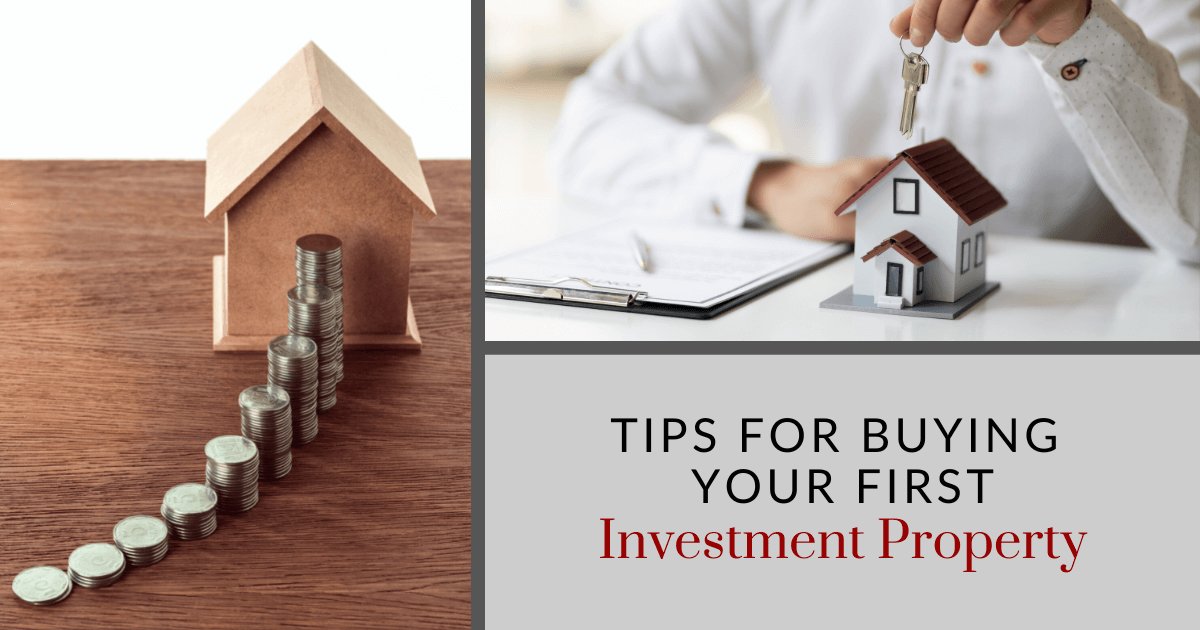How to Buy an Investment Property: 3 Easy Steps
Posted by Dave Kotler on Wednesday, November 9th, 2022 at 12:09pm.

Investment properties can be profitable, come in many forms, and are a solid addition to one's financial portfolio. These investments can establish a steady influx of cash, tax breaks, and capital appreciation.
Because real estate investment endeavours can be labour-intensive, selecting the correct route is essential. With that in mind, here are some solid tips to get started with buying your first investment property.
Consider the Common Types of Investment Properties
There are four primary properties to explore before investing:
- Flip and turns
- Residential rentals
- Vacation rentals
- Commercial properties
Here are their pros and cons to help investors go into the project with open eyes.
Flip a House and Turn It for Profit
House flipping is becoming one of investors' most popular real estate options. Homes known as "distressed properties" that need a cosmetic lift or renovations can be suitable investments.
Due to their condition, these properties tend to sell below market value. After the investor makes repairs, the home's resale value typically increases. Another route for investors is to buy properties at auctions or foreclosed homes that can quickly resell for a profit.
One possible drawback that may challenge first-time investors is keeping the cost of rehabbing the property low. Property flippers need to know which repairs and renovations will yield the highest resale value. Some projects cost more than the actual return on investment.
Finding distressed or foreclosed homes can be another challenge. One approach is to search neighbourhoods personally or virtually. Scouting auctions and foreclosure listings are common ways to find houses to flip for profit.
Invest in Residential Rentals
More people are renting longer these days, making residential rental properties a wise investment. Residential investors can rent out several property types, including:
The tenant's rent can help cover the investor's loan costs, generate extra cash flow, and contribute to the long-term appreciation of a residential rental property. Some other things investors should keep in mind is their responsibility for handling or paying someone for maintenance and landscaping tasks. Mortgage rates for rental properties are often higher than primary residences.
Invest in a Vacation Rental
Vacation properties are typically short-term rentals that can be condos, Airbnbs, or bed and breakfasts. They don't have to be separate from the investor's primary residence. As a perk, technology makes it easier for travellers to find these accommodations.
Ambitious investors might consider buying a vacation property near popular attractions or touristy cities. Popular locations across the country include:
- Niagara Falls
- Blue Mountain
- Jasper National Park
- Quebec City
- Montreal
- Vancouver
A perk for investors is not only passive income—they can have a vacation spot for themselves when the property is unoccupied. Others may opt to make the home a place to live after retirement.
In addition to the initial investment costs, owners must either self-manage or hire a property management company. Essentially, they must plan to book the unit, take in payments, perform maintenance, and clean.
Invest in Commercial Real Estate
Commercial real estate is rental property for businesses and corporations, including multi-family homes with five or more units. These properties are malls, shopping centres, grocery stores, offices, and industrial complexes.
Commercial real estate can be lucrative when fully or mostly occupied and be an excellent asset to one's investment portfolio. However, commercial property often requires a significant upfront investment that can run into the millions. The tax implications and insurance are also much higher when investing in commercial property.
How to Finance an Investment Property

The first step to determining ways to finance an investment property is whether it be commercial or residential. The next factor is whether the investment will have two to four units if it's not a single-family property. Most buildings in this category are zoned as residential. As mentioned above, properties with five or more units are considered commercial.
For multi-unit investments, owners must decide whether to live in one of the units themselves, making it eligible for an owner-occupied loan. If planning to rent out all the units, the property is considered non-owner-occupied. The primary difference between them concerns how much of a down payment will be required.
Owner-occupied properties can require a down payment between 5-10%. Non-owner-occupied investments require a minimum 20% down payment, which is also the requirement for primary residence single-family homes.
Properties deemed as commercial will have to secure a commercial mortgage. Qualifying for one requires investors to meet much stricter criteria, and interest rates are typically much higher.
Investors can use the equity from a residential property with a home equity line of credit (HELOC) to secure a second mortgage for an investment property or a line of credit using the equity in their home. They give investors greater flexibility in payments versus conventional mortgages and can pay more of the principal early without penalties. However, a HELOC usually has higher interest rates than standard mortgages.
Another approach to financing an investment property is to become a private mortgage lender, which allows owners to serve as their own bank for other buyers. In other words, those wanting to profit without owning can be a financing source to give money to property buyers. Investors earn interest to recoup the loan amount over time.
Tax Considerations for Investment Homes
The Canadian Income Tax Act mandates that investors remit 25% of their gross property rental income annually. In years when rental properties incur net losses, owners can reclaim that amount from previously paid taxes. Fortunately, bank loans, taxes, mortgage payments, and certain expenses are deductible.
The two types of deductible expenses are capital expenses and current operating expenses. Capital expenses offer longer-term benefits for investors, especially for multi-family properties.
When selling, residents don't pay taxes on the capital gains if the property is a principal residence. Those who don't live there will pay capital gains on profits if the home sells for a higher value than the purchase price. When non-resident investors sell Canadian property, the government claims 50 percent of the sale as a withholding tax.
Discover the World of Real Estate Investment Properties
With these tips, you can be better prepared to begin as a first-time real estate investor. It's essential to understand the pros and cons to prevent taking on more than you can handle—at least until you get more experience investing in residential and commercial real estate.
Dave Kotler

